Going nuclear: UK's deal with China
- Published
- comments
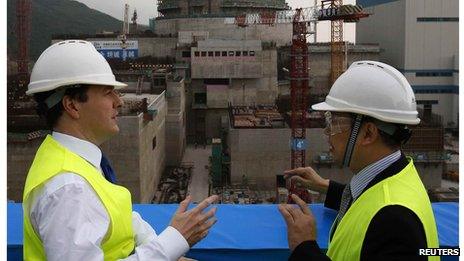
George Osborne sees Chinese involvement in Britain's nuclear industry as a great opportunity
Perched high on top of one of the giant new reactor buildings under construction at Taishan we had a view over the entire site.
It's one of the biggest nuclear plants of its kind in the world: six reactors being built on the edge of the South China Sea.
In front of us construction cranes encircled the egg-like shape of another huge, grey concrete reactor shell. They swung lazily back and forth.
Teams of workers were welding metal bars in place. Everything looked incredibly orderly.
George Osborne, the UK chancellor, looked impressed. Mr Osborne had just announced that he will welcome Chinese participation in building nuclear power stations in Britain.
Mr Osborne's host, Zhang Shan Ming, the general manager of the China General Nuclear Power Group (CGN), obviously keen to stress the safety features of the reactor, was explaining why the concrete casing was so thick.
"It's against air traffic crash," Mr Zhang said.
"Right," the UK chancellor replied. "Special safety procedures."
"An earthquake, or tsunami, or typhoon, you are prepared for that?" Mr Osborne asked.
"The design is prepared for this," he was told.
Nuclear deals with China loom
Britain's chancellor seemed reassured, as he needs to be, given that a near replica of Taishan is now likely to be built at Hinkley Point in Somerset in the UK at a cost of around £14 billion ($22bn) by a similar consortium to that working in China.
Taishan uses European-designed reactors built by a partnership between the French firm EDF and China's CGN. It's one of almost 30 new nuclear power plants China is building or planning to build.
China has not had any major accidents at its nuclear power stations, and says its safety record is good.
But there are concerns that, in the dash to build so many new reactors, and use indigenous Chinese technology in some, safety could be compromised.
'Lack of transparency'
Just down the coast from Taishan lies Hong Kong, where environmental groups enjoy far more freedom than they would have in China. They say there are reasons the UK should be cautious about partnering with China's nuclear operators.
"My first concern would be the lack of transparency," says Prentice Koo, senior campaigner at Greenpeace.
"Their track record is really bad. For every incident in a nuclear power plant in China, they only provide a very brief report, and all it says is how they solved the problem," he says.
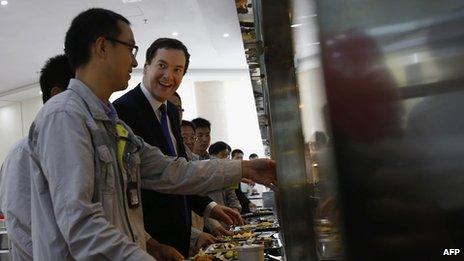
George Osborne was happy to sample the food at the workers' canteen
"They never give the reason for the incident."
His second concern is whether Chinese companies would actually pay up if they were found liable for any incident that happened to a reactor they had built overseas.
"The nuclear industry in China enjoys such a privileged position that they have to pay only very limited sums in compensation if there is any major incident," explains Mr Koo.
"Overseas they'll be required to pay a lot more... it'll test the ability of China's nuclear industry to pay up."
At Taishan, though, they were keen to point out not only their safety features, but also how transparent they are.
Dong Shi Ming, a public relations officer, said it was so open that members of the public could come and visit the site - all they had to do was apply for an organised tour.
He claimed thousands had already done so.
Questions
Is China's nuclear industry safe or not? Is it really transparent? They're important questions.
Involvement in the UK will test China's firms. It may even force them to be more transparent.
The only other place where China has built reactors so far is in Pakistan.
Some in the West will be deeply uncomfortable at the prospect of Chinese state-owned firms being involved in the building and running of UK nuclear plants.
After all, China remains an authoritarian state, its nuclear firms answerable, ultimately to the Communist Party.
For now they are to be minority players in the UK. But one day they may have control over some of Britain's strategic energy supplies.
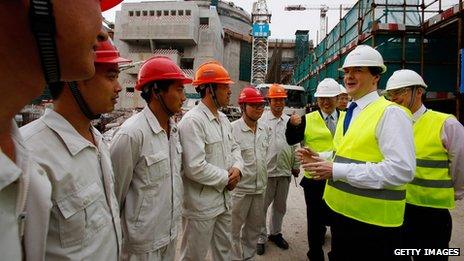
Taishan is one of the biggest nuclear plants in the world
Others, like George Osborne, see a great opportunity.
As one member of the British delegation explained to me, deeper commercial engagement will give China a bigger stake in Britain's success. Britain's goodwill in opening up to Chinese firms could engender better ties and reciprocal opportunities for British firms in China's nuclear industry.
'Balanced'
The UK is already a major investor in China through oil firms like Shell and BP.
Getting China to invest more in the UK makes the relationship more balanced, the argument goes.
China now has stakes in Britain's oil and gas industries; nuclear opens a major new area to it.
Some of this boils down to long-running arguments: Is it better to engage China or to be cautious? Is it wise to draw it into a deeper relationship with the outside world or be wary of the intentions of its opaque Communist rulers?
At Taishan George Osborne has taken a big, some might worry risky, step: he's gone nuclear.
- Published17 October 2013
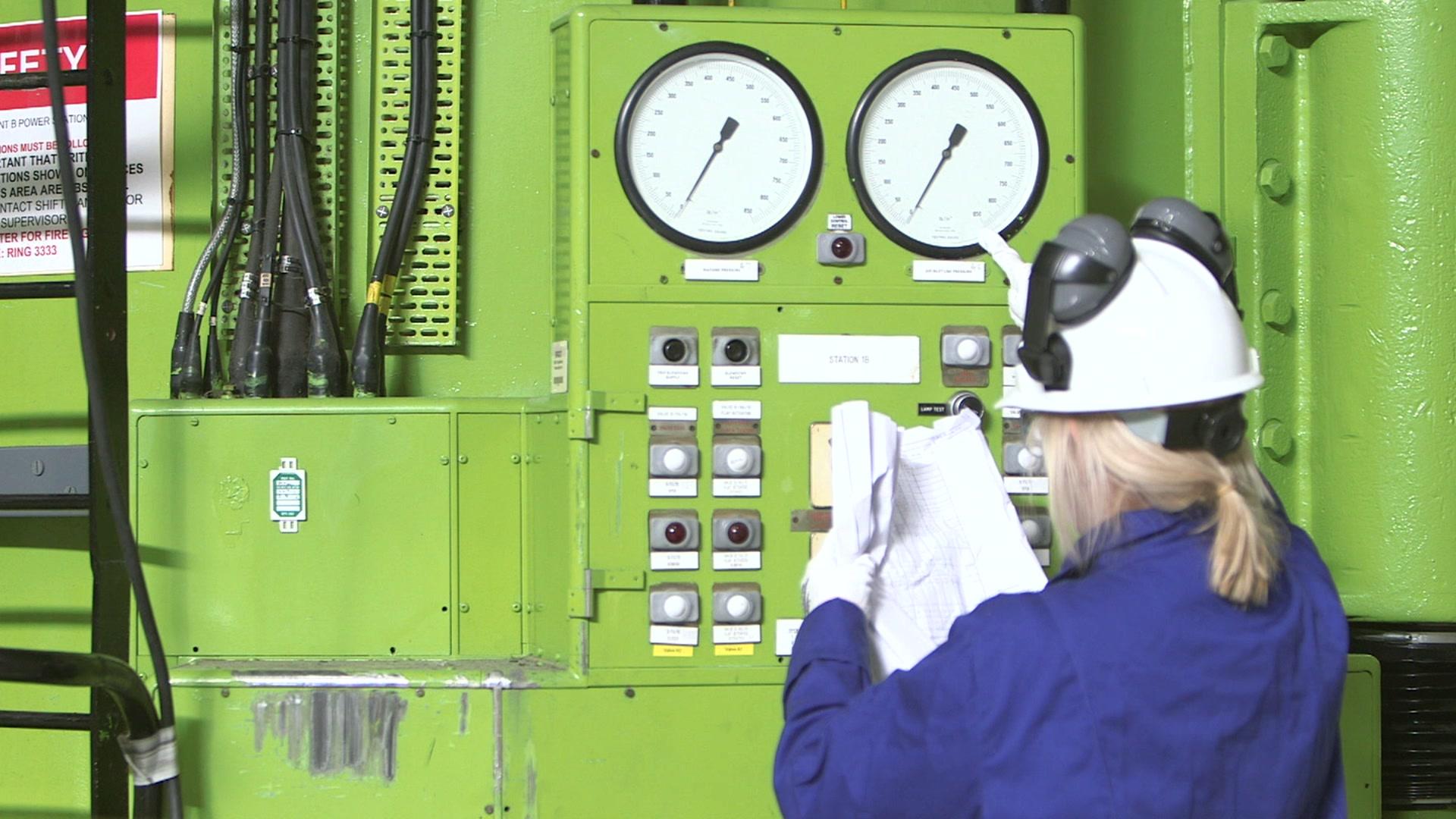
- Published17 October 2013
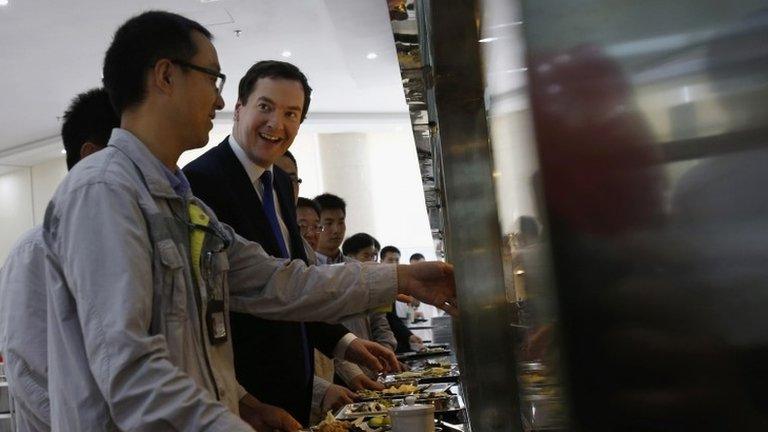
- Published17 October 2013